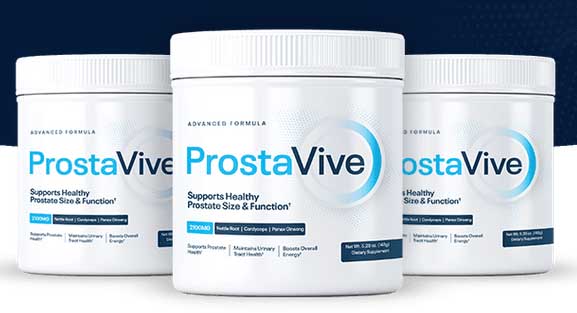Can stress cause prostate problems? Ah, stress. That charming little devil that makes your heart race, your palms sweat, and your patience for humanity run thinner than a sheet of single-ply toilet paper. We’ve all danced with it. Sometimes it’s a slow waltz, sometimes it’s full-on interpretive breakdancing at 3 a.m. on a Tuesday when you remember you didn’t pay your taxes. Again.
But today, I’m not here to talk about existential dread or the slow death that is group Zoom calls. No, today I’m diving deep—like colonoscopy deep—into something near and dear to roughly 50% of the human population: the prostate. And how stress, that drama queen of emotions, may be sneakily causing it to puff up like an angry pufferfish in a sea of bad decisions.
Let’s break it down. We’re going on a journey. There will be science. There will be sarcasm. There may even be a few prostate puns. Buckle up.
Chapter 1: The Prostate – The Unsung Hero of the Below-the-Belt Region
The prostate is a walnut-sized gland nestled between the bladder and the penis. Its job? It makes seminal fluid. That’s right—this little overachiever helps keep the human species going, and yet we treat it like the printer in the office that only gets noticed when it’s not working.
For most of a man’s life, the prostate sits there, quietly doing its job. But as men age, the prostate can become a bit… needy. It starts to grow. Kind of like your uncle’s opinions at Thanksgiving dinner—bigger, louder, and harder to ignore.
This growth is known as Benign Prostatic Hyperplasia (BPH), which is a fancy term for “your prostate is getting swole and not in a sexy gym-bro way.”
Chapter 2: The Stress-Prostate Connection – A Plot Twist Nobody Wanted
Now, I know what you’re thinking: “What does stress have to do with my prostate suddenly deciding to become the size of a small grapefruit?”
Great question. And you’re not alone in asking it. Most people don’t connect emotional strain with the literal plumbing of the male anatomy. But, as it turns out, your body doesn’t compartmentalize things the way your high school locker did.
When you’re stressed, your body releases a delightful little chemical called cortisol. It’s like the body’s version of that coworker who always says “we have a situation.” And when cortisol shows up, it doesn’t come alone—it brings a whole entourage of hormonal chaos.
This hormonal disco affects testosterone, inflammation, blood flow, and yes—the prostate.
Chapter 3: Cortisol – The Uninvited Guest at the Prostate Party
Imagine your body is a nightclub. Testosterone is the cool DJ who keeps things smooth, efficient, and running on rhythm. Then stress bursts in, high on cortisol, yelling, “THIS PARTY SUCKS!” and starts flipping tables.
Cortisol doesn’t just mess with your mood and sleep—it screws with your hormone balance. Chronically elevated cortisol can reduce testosterone levels, which can indirectly contribute to the growth of the prostate. Because when testosterone levels drop, something called dihydrotestosterone (DHT) can go rogue.
DHT is like testosterone’s intense little cousin who took one too many pre-workout shots. It binds to receptors in the prostate and says, “Let’s GROW, baby.” And the more DHT hanging around, the more your prostate starts bulking up like it’s trying to win a bodybuilding competition in your pelvic region.
Stress = more cortisol → less testosterone → more DHT → larger prostate.
It’s like a bad math equation you didn’t know you were solving with your feelings.
Chapter 4: Inflammation – Because Everything’s Better When It’s Inflamed (Said No One Ever)
Let’s talk inflammation. Not the cool kind, like a flaming cocktail at a tiki bar. I’m talking about the silent, simmering, body-wrecking kind.
Chronic stress leads to chronic inflammation. Think of it like the “background noise” of your body’s immune system yelling “something’s wrong!” even when nothing’s on fire. And unfortunately, your prostate is a prime target.
An inflamed prostate is an angry prostate. It gets sensitive. It swells. It can press against your bladder, your urethra, and suddenly—bam—you’re peeing six times a night and taking longer in the bathroom than someone doomscrolling through Reddit.
Stress doesn’t cause infection. But it creates the perfect storm for prostatitis (inflammation of the prostate), and for men over 40, that’s like inviting a raccoon to your picnic: it’s gonna be messy.
Chapter 5: Can stress cause prostate problems? Muscle Tension – Why Your Pelvis is Clenching in Protest
You ever notice how stress makes you clench your jaw, your shoulders, your fists? Guess what? Your pelvic floor muscles are also like, “Oh cool, we’re doing tension now? Got it.”
When these muscles tense up, they can interfere with the function of the prostate and bladder. Imagine trying to pee with your pelvic floor clenched like a fist. It doesn’t go well.
This muscle tension can lead to or worsen something called Chronic Pelvic Pain Syndrome (CPPS), a condition where everything feels off “down there” but there’s no infection. Surprise: stress is one of the biggest triggers.
So yes—stress can literally cause your body to clamp down on your own plumbing system like it’s trying to smuggle diamonds.
Chapter 6: The Vicious Cycle – AKA “Why God, Why?”
Stress makes your prostate act up. Your prostate acting up causes discomfort, frequent urination, sexual dysfunction, or pain. All of that… causes more stress. Which then leads to—you guessed it—more prostate issues.
It’s the hamster wheel from hell. Except the hamster is your nervous system and the wheel is your urinary tract.
And because men are often told to “man up” and not talk about these things, many suffer in silence, stress themselves more, and make the problem worse. Lovely.

Chapter 7: What Can You Do About It? (Besides Panic, That Is)
Okay, enough doom and gloom. Let’s talk solutions. Because your prostate deserves peace. And frankly, so do you.
1. Manage Your Stress Like a Pro:
This means different things for different people. For some, it’s yoga. For others, it’s boxing.
- Meditate. Yes, really.
- Breathe deeply. Like you’re trying to fog up every mirror in a sauna.
- Sleep more. No excuses.
- Laugh often
2. Move That Body:
Exercise lowers cortisol, boosts testosterone, and improves circulation. Think of it as giving your prostate a friendly hug from the inside.
3. Eat Like Your Prostate’s Watching:
Cut back on sugar, alcohol, and processed foods. Add more tomatoes (lycopene), green tea, berries, salmon, and pumpkin seeds. Your prostate will say “thank you,” probably via fewer midnight bathroom trips. Have a look at the mediterranean diet – which is great for your prostate (and all of you).
4. Talk to a Doctor:
Not Dr. Google. Not your buddy Chad. A real urologist who went to actual school. Get checked. Regularly.
5. Talk to a Therapist, Too:
Because guess what? Mental health is physical health. And your prostate is part of your body, not some rogue entity freelancing in your pelvis.
Chapter 8: Can stress cause prostate problems? Real Talk – The Takeaway
Here’s the thing. We like to think of stress as just a mental issue. A brain thing. A “suck it up” situation. But the truth is, stress doesn’t stay in your head—it leaks into your hormones, your heart, your sleep, and yeah, your prostate.
You can’t always control what life throws at you. But you can control how you respond. And maybe, just maybe, your prostate will thank you for it.
So go ahead—relax. Laugh. Sleep. Meditate. Tell stress to take a hike. Because nobody wants their walnut to turn into a coconut.
Epilogue: Can stress cause prostate problems?
If you’ve made it this far, congratulations. You now know more about stress and the prostate than 90% of your fantasy football league. Use that power wisely. And remember:
- It’s okay to take care of yourself.
- It’s okay to talk about your health.
- And it’s okay to laugh at your body’s quirks—because what else are you gonna do?
Just don’t ignore it. Your prostate’s trying to tell you something. And unlike most texts from your ex, it actually matters.
Stay chill. Stay healthy. And keep the walnut happy.
Best
Al
PS Want to add to the conversation? Leave a comment below!
